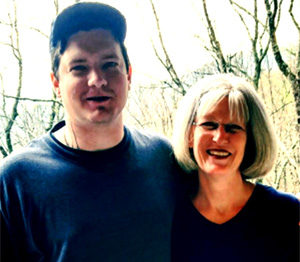Campuses tackle the opioid epidemic
By Ellie Ashford
September 6, 2017
As the opioid epidemic grows, community colleges are responding in a variety of ways – through education, stepped-up counseling and recovery services, and partnerships with law enforcement.
Asheville-Buncombe Technical Community College (A-B Tech) in North Carolina was devastated by a fatal overdose on campus last month.
But when A-B Tech spokesperson Kerri Glover alerted the media about the death, “both television and newspapers told me it unfortunately wasn’t considered newsworthy because they see multiple death reports everyday of young people who die from opioid overdoses.”
“That really started to wake us up,” Glover says. She subsequently learned that two other students experienced overdoses on campus this summer – one passed out in an evening class and another was found in a restroom – and both were revived with the drug naloxone. Another three students died of overdoses off campus.
Heather Pack, director of student support services at A-B Tech, says nine out of 10 students coming in for personal counseling report a problem with addiction.
A-B Tech is not alone. The opioid epidemic is affecting virtually every corner of U.S. society, and community colleges are responding in a variety of ways – through education, stepped-up counseling and recovery services, and partnerships with law enforcement.
A student’s struggle
Stuart Mosely, the 30-year-old A-B Tech student who suffered a fatal heroin overdose, had walked out of a classroom on July 3 and never  returned. His body was later found in a restroom on campus.
returned. His body was later found in a restroom on campus.
He had been using opioids off and on for the past 12 years, been through periods of homelessness, and had been in recovery several times, says his mother, Anne Seaman.
Seaman is speaking out publicly about her son’s struggles with drugs and appears in a video produced by A-B Tech that will be shown to all incoming students. She is also working with the college to start a group for people in recovery and hopes to find a dedicated space for it, noting, “the community college has been very good on being proactive and has been very responsive.”
“It’s no longer an epidemic here in Asheville. It’s an emergency. It cuts across all socioeconomic and demographic lines. It’s just everywhere,” Seaman says. “Some people bury it. I have chosen not to bury it.”
The college is working with Red Oak Recovery, a rehab facility, to provide training for faculty on the warning signs of addiction, resources for students and the physiology of addiction.
A-B Tech also hosts a three-hour event every spring on helping students cope with addiction and recovery issues and plans to step up communication with students. “We want to let them know we’re here if they want help,” Pack says.
In addition, A-B Tech police officers will start carrying Narcan, one of the trade names of naxalone, but the college isn’t going to publicize that because some addicts might continue to use drugs on campus if they know they will be revived should they overdose.
A pandemic
Although Lorain County Community College (LCCC) in Ohio has not had an overdose on campus, the college is playing a significant role in battling opioids, says President Marcia Ballinger.
“It’s no longer an epidemic in our community; it’s become a pandemic,” Ballinger says.
There were 132 overdose deaths in 2016 in Lorain County. Now, there are two or three fatal overdoses in the county every week and one overdose death every five hours in Ohio, she says.
Ballinger blames the spike in fatalities on the growing use of “multiple mixed drugs” – lethal combinations of synthetic opioids like fentanyl along with cocaine and heroin. Crime lab statistics show a 30 percent increase in the number of cases involving mixed drugs between the first half of 2016 and the first half of 2017.
Because of its location between Chicago, New York and the Great Lakes, the U.S. Drug Enforcement Administration (DEA) has designated Lorain County “a high-intensity drug-trafficking area,” she says. That makes the community eligible for additional federal resources.
Under a “one-roof strategy,” LCC has offered a vacant building in the college’s technology park to a coalition of local law enforcement agencies and the DEA’s advanced forensic technology unit to battle drug trafficking.
The county commission has agreed to fund scholarships for students in criminal justice and addiction counseling, and those students will have opportunities for internships with the anti-drug coalition.
LCC created the CARE (Caring Advocates for Recovery Education) Center on campus two years ago to provide counseling and other services for students, family members and the community at the request of three students who were in recovery themselves and were in an academic program on addiction counseling.
During the CARE Center’s first year in 2015-16, 73 students came in for services. Last year, the center served 307 students, Ballinger says.
Whether that’s because students are more aware or feel more comfortable seeking help, that’s a significant increase, Ballinger says. “We’re a microcosm of the community at large.”
There’s more to the story. Read the full article at CC Daily.


